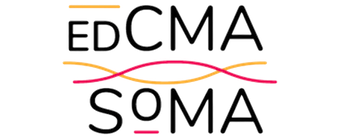Studying Medical Anthropology
Content
We offer two MSc programmes, the Taught and Research MSc in Medical Anthropology. Both can be taken as routes into our dynamic PhD programme in Social Anthropology. In addition, Medical Anthropology is also a key component of our undergraduate MA programme in Social Anthropology, in which we offer a number of health related option courses.
- Undergraduate
-
There are currently a range of courses that students interested in medical anthropology can take, including:
- Masters
-
Our programme is the largest of its kind in the UK. Altogether eight members of academic staff from Social Anthropology carry out research on the body, health and medicine, giving students a fantastic range of courses to choose from.
Our core courses in "Anthropology of Health and Healing" and "Anthropology of Global Health" reflect our unique expertise in the intersections between anthropology and globalized biomedicine.
The Edinburgh programme in Medical Anthropology attracts a diversity of students: social science graduates who want to specialize in medical anthropology; medical doctors who want to expand their understanding of health with an anthropological perspective; and students who aim at entering top-ranking medical schools.
Our wide range of options allows students to tailor the programme to their interests. We offer specialised packages of courses in global and public health; science, knowledge and technology, and health and international development. Those interested in pursuing work or research overseas also have the option of studying a range of languages including Arabic and Swahili.
- PhD
-
Our Taught and Research MSc can be continued into the PhD in Social Anthropology programme.
Examples of recent and current PhDs include:
- An ethnography of care and community among compulsive hair pullers in the United Kingdom
- For the Good of the Breed: health, heredity, and the ethics of breeding pedigree dogs
- "It just opens up their world": Autism, equine therapy and enacted intersubjectivities
- Pandemic Parenthood: Care and Kinship in a Time of AIDS
- Practicing Public Health: Health Workers and Tuberculosis Control in Contemporary China
- Transnational Conceptions: Displacement, Maternity, and Onward Migration among Somalis in Nairobi, Kenya
- Chronic Illness at the Margins: Turkish Immigrant Experiences of Type 2 Diabetes in Germany
- Mapuche Healing Cosmologies
- Bodies of Memory, States of Health: Disability in Post-conflict Serbia
- Intercalated Degree in the Anthropology and Sociology of Medicine
-
It is widely recognised that social and cultural factors play an important role in shaping medicine and healthcare. The intercalated year in the Anthropology and Sociology of Medicine is designed to give aspiring medical practitioners a critical scholarly understanding of the social dimensions of modern medicine. This includes: the social meanings of healthcare, health and illness; the role and limits of biomedical science and technology; and what healthcare can deliver for individuals and societies in resource-rich and resource-poor settings. Students will develop a theoretical and practical appreciation of the different concepts and approaches used within anthropology and sociology, with a particular focus on how they can contribute to pressing debates about the role, aims and organisation of contemporary biomedical research, healthcare practice and policy-making.
The programme will provide students with a well-rounded academic grounding in anthropology and sociology as distinctive scholarly disciplines with their own approaches, histories and traditions. Students will be encouraged to apply social scientific thinking to issues of particular relevance and interest to them. This could include, for example: what counts as ‘good’ healthcare in different settings; how culturally specific understandings of health and healing might influence infection control; how medical innovation is shifting understandings of disease and illness; how the role of medical professionals is changing with the rise of digital technologies. The programme is particularly well suited to students who enjoyed the Health and Society Course and the Social Science and Public Health vertical theme of the University of Edinburgh’s MBChB programme.
Students will develop valuable transferable skills in critical thinking, written and verbal presentation, and project management. They will be exposed to a range of different types of social science research, case studies, and data, and will learn to make effective use of different forms of evidence in their personal, professional, and community life. The programme aims to enhance students’ ability to proactively adapt to different social and cultural contexts, while maintaining their personal and intellectual autonomy.
More information - Intercalated Degree in the Anthropology and Sociology of Medicine
